H-1B Visa
Temporary Visa for Specialized Occupations
Basics of the H-1B Visa
Filing an H-1B visa is a complex process. Regulations change frequently. Below is a brief overview of the process.
History
The H-1B visa was created in 1990 to allow US employers to hire foreign nationals to fill positions in engineering, computer science and scientific research. These fields were expanding rapidly, and the number of American students graduating from college was insufficient to fill all vacant positions. To keep the US competitive globally, the only option Congress had was to allow US companies to hire foreign workers.
Though the visa was supposed to be a temporary fix, the continuing explosive growth in these industries and the lesser number of US college STEM graduates have kept the need for H-1B workers high.
Eligibility Criteria
To qualify for an H-1B visa
- The position must be a “specialty occupation”
- Only US employers or their agents can file
- Employer must have a genuine need for a new employee
- The worker must have at least a bachelor’s degree related to the job
- The salary must match what similar workers in that locality earn
Who Qualifies – The Definition of “Specialty Occupation”
The H-1B visa is for specialty occupations only. A specialty occupation is one where the worker needs a ...
...college-level education in a specialized field to perform the job.
The following positions always qualify for an H-1B visa:
- Licensed professions – architects, engineers, medical doctors, lawyers, accountants
- Professions requiring STEM degrees- Scientific research, technology, engineering, mathematics and other highly technical fields.
Other position may qualify for an H-1B visa, depending on how complex the job is:
- Marketing and HR positions- One of the most litigated areas when practicing H-1B visa law is the definition of “specialty occupation”. The above examples clearly require technical knowledge. But there are a lot of fields that may require specialized knowledge, depending on the job responsibilities. These fields are usually in marketing or human resources. Some of these positions do qualify for H-1B visas, depending on how complex the job responsibilities are.
- When the position is no longer a specialty occupation even though it qualified in the past- The definition of specialty occupation has also evolved with the times. Years ago, the IT industry only had one position: “computer programmer”. This position, of course, qualified for an H-1B visa then. Computer coding was a specialized skill at that time. Because high schoolers are proficient at writing basic computer code nowadays, the position of a computer programmer” is no longer a specialty occupation! However, an attorney can look at your position and may be able to qualify you under another position such as a software developer or systems analyst.
- When the job title may not be specialized but the position is - In some cases, whether the job will qualify for an H-1B is a matter of degree. Careful analysis by a qualified attorney comes in handy in these situations. For example, a writer is definitely not a specialty occupation. A writer does not need a college degree to perform her job. But if the writer is creating technical documents, there are parts of her job for which she needs a technical college degree, and she can, therefore, be classified as a technical writer and will qualify for an H-1B.
To read more from the government, please click here.
How Many Qualify
At present, US employers can file first-time H-1B visas for 65,000 bachelor’s and 20,000 US master’s degree holders. First-time H-1B visas are for people who have not held an H-1B visa in the past 6 years.
Along with first-time H-1B workers, employers are allowed to extend the H-1B visas of workers who are already employed on H-1B visas.
The Filing Process & Duration of the H-1B Visa
First Time H-1B Visas
The Annual H-1B Visa Lottery
In recent years, well over 100,000 new H-1Bs were filed each year for this 65,000 (bachelors' degree holders) + 20,000 (US Masters' degree holders) quota. For example, in April 2022 USCIS received over 400,000 registrations for FY 2023. To decide who will get an H-1B, the USCIS runs a lottery each year.
Evolution of the Annual H-1B Lottery
For a long time, the USCIS followed its “first filed” principle when accepting ...
For the next few years, the USCIS collected all the filings in a given time period and then ran a lottery to decide which of the petitions would be accepted for processing.
Current H-1B CAP Registration Process
At this time, the USCIS, the government agency that processes visas within the US, requires employers to register online before they can file new H-1B petitions. Employers fill out a simple one page questionnaire on USCIS's website instead of sending in a complete petition by mail. The USCIS’s computer randomly picks 65,000 regular and 20,000 US Masters degree holders out of the registrants. The employers then have 3 months to submit their petitions.
USCIS maintains a page on their website where they provide latest statistics on H-1B CAP filings. This page is also updated with filing procedures every year to help employers with H-1B lottery submissions.
Extensions & Amendments of H-1B Visas
Employers can also extend H-1B visas for employees who are already on H-1B visas.
If you have filed a H-1B petition for a foreign national, you can always check status of the petition on the USCIS’ website.
If the petition is taking longer than expected, you can check the USCIS’s current processing time to ensure that your case is still within normal processing times.
Process After H-1B Visa is Approved
Once the H-1B file is approved, the foreign worker goes to the US consulate to get the visa issued. The USCIS transmits a copy of the H-1B filing to the Department of State and the local US consulate closest to the foreign national’s home. The foreign national then has to then schedule an appointment with the consulate to get the H-1B visa issued to them.
If the foreign worker is already in the US on a different visa, they can request a change of status to start work. USCIS will issue a new I-94 to them along with the H-1B approval notice. This allows the H-1B worker to start work on the "start date" listed on the approval notice without having to travel to the consulate to get the H-1B visa issued.
Duration of H-1B Visa & Visas for Family Members
Initial H-1B visas are issued for 3 years and can be extended for a total of 6-years. Employers can continue to file for extensions even after these 6 years if they have already filed for permanent residency (green card) for their H-1B employee.
Our Client-First Approach to Your H-1B Visa
H-1B Visas are complicated. There are many challenges that employers who are sponsoring, and workers who are being sponsored face. At Immigration Desk, we believe in always putting our client's interests first. We take the time to know you and your case, and after focusing solely on Business Immigration Law for over 25 years, our experienced attorneys are excellent at spotting problems. We then resolve them even before a case is filed, so the application process is smooth and the visa approval comes in on time.
We represent both employers and employees in the H-1B process. For ease of navigation, this section is divided into 3 parts
- Problems that H-1B Employers Face
- Problems that H-1B Foreign Workers Face
- How We Help Resolve Our Clients' H-1B Problems
Problems that H-1B Employers Face
After filing thousands of H-1B petitions for over 25 years, we find that the following are the most pressing concerns that our corporate clients face.
- Uncertainty regarding whether your employee will get picked up in the lottery. If the employee is not picked up, the time spent and the cost of recruitment is lost. As the employer, you have to start the recruitment process all over again and hope you are able to find a US worker. This also stops you from planning your workflow since you don’t know if / when you will be able to onboard a much needed employee.
- The cost to file the petition. The H-1B visa is the most expensive of all US visas. As a US employer, you must pay most of the fees to file the H-1B petition. If you have over 50 employees and half of them are on H or L visas, there is an additional fee on top of the already high fees!
- Delay in starting new employees. As an employer running a for-profit business, you usually don’t want to file a petition for a foreign worker, who, if picked up in the lottery, will not be able to start until almost 6 months later. While larger employers and Fortune 500 Companies can still plan to wait for employees, smaller and medium-sized companies most times have an immediate need to hire.
- Compliance with Regulations. The Department of Labor and the USCIS both monitor each aspect of the H-1B work. As an employer, you have to be mindful of treating the foreign worker the same as other workers, paying them the same salary and filing another H-1 if any of the job conditions change. Your wages, hours, work location are all monitored and regulated.
- Ability to retain the foreign worker. And even when an H-1B worker in onboarded, as an employer, you are always concerned that their highly desirable skills make it likely they will be poached by the competition.
Problems that H-1B Foreign Workers Face
- Getting through the lottery. The H-1B visa lottery means you can do everything right and still not get “picked” up. This puts your professional plans on hold indefinitely.
- Issues facing foreign students. If you are a foreign student on a F-1, you know that you only have a limited amount of time to find a US employer and to start work before your student visa runs out. If you find an employer, start work while on a student work permit, you still need the H1B to be picked through the lottery. Without it, you will either have to continue to another expensive college degree which you don’t want, or have to return to your home country. Please click here to access our page dedicated to your issues.
- Not treated the same. Even after you get a H-1B visa, as an H-1B employee, there are times when you may not be treated the same. You may end up doing more work for the same pay as your co-workers. Sometimes, you may be assigned to work on holidays because your colleagues assume that since you don’t have family in the US, you have nowhere to go for the holidays. It could be that you yourself may feel obligated to work long after everyone else has left for the day because you believe that the employer did you a favor by giving you the opportunity to live and work in the US.
- Fewer opportunities to move. As an H-1B worker, you may face hurdles when looking for a new job. Employers sometimes withdraw job offers when they find out you will need H-1B visa sponsorship. They are wary of paying thousands in government fees and are also concerned about the regulatory requirements for hiring H-1B workers.
- No break. As an H-1B worker, there is a constant pressure to maintain your status: You must have a specialized job at all times when you are in the US; you cannot switch jobs without needing the next employer to file another costly visa; you cannot take a break from work; or work at any position other than your specialized field. If you get fired, you only have a limited amount of time to look for another job.
- Limit on spouses’ ability to work. As an H-1B worker, your spouse, even if highly qualified, is only allowed to work after your green card (I-140) is approved.
- For Indian and Chinese nationals, green cards take many years, sometimes over 10 years. (Indians and Chinese workers account for over 80% of the H-1B visas). This adds to a lot of stress because you may have to postpone live events – marriage, buying a house, settling down – till you have more stability in your life.
The Immigration Desk Solution
In the section above, we have tried to provide a brief snapshot of some of the non-legal, real-world challenges of the H-1B visa process. In addition, the legal process is also complex, since the H-1B rules and regulations evolved over time. The brief and concise regulations that were initially written in the 1990s bear little resemblance to the patchwork of statutes, regulations, policy memoranda and case law we now have to work with. With over 25 years of experience, and an almost perfect approval rate after filing thousands of H-1B petitions, our dedicated attorneys have found solutions to almost every H-1B challenge. We believe in doing whatever it takes to make the process easy, straight-forward and cost effective for our clients. Simply put, our clients come first. Always.
For H1B Employers
We routinely help large companies file high volumes of H-1B visas as well as help smaller and medium-sized companies who need fewer employees, or need more individualized services. We routinely also represent employees.
Since we are familiar with H1B trends and what new laws are expected, we help our corporate clients plan their H1 workforce, starting from helping screen prospective candidates to helping provide a salary range for a particular job. We help our clients plan the timing of the H-1B visas and gaps in employment when the new employee’s student visa is lapsing.
Sometimes our larger clients want to outsource all their visas to us, or have us perform in-house audits. We help train HR staff on immigration compliance and help perform internal audits to meet with regulatory requirements. To make the process streamlined, our paralegals can directly collect documents from new hires, and our top-of-the-line case management system make the process efficient.
Sometimes our clients are filing for their first H-1B visa and need guidance on what their responsibilities are. Or, the position is non-technical, and we have to flush out the job description to make sure the position qualifies for an H-1B. We take pride in guiding and helping our clients grow their businesses or move seamlessly to a new job. We use our years of experience and high success rate to help you achieve the right visa each time.
For H1B Workers
We represent a large number of H-1B workers as well. Many come to us because they want to hire their own attorney, or because the employer's attorney is never available to them. In the more recent years, our team has gained a well-deserved reputation for being able to get challenging H-1Bs approved. A lot of workers approach us when they receive a Request for Evidence.
We like making cases routine, but thrive on the approval we win on tough cases.
In the next few months, we will be adding a lot of legal information in the table below. Please visit our section below for details on the individual components and complexities of H-1B visas. We look forward to hearing your comments and adding information based on what you want to read most!
Read about our featured award-winning founding attorney, Anu Gupta. Please contact us if we can help make the immigrant journey easier for you!
Awards
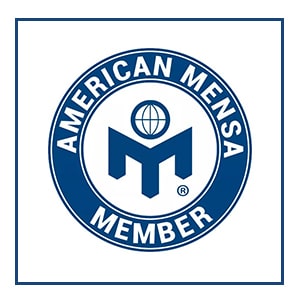
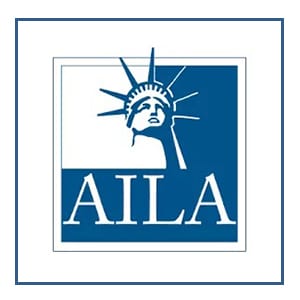

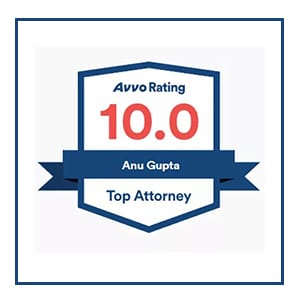
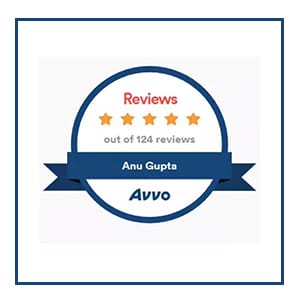

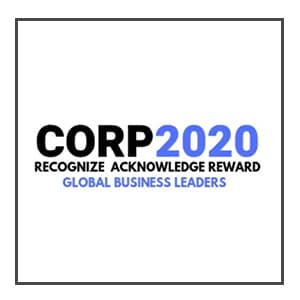

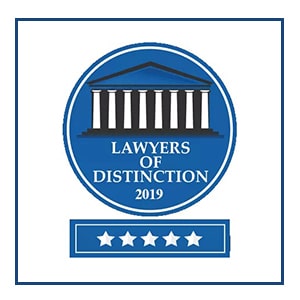




Testimonials
Professional, well organized, and very responsive corporate immigration lawyers
I have known Attorney Anu Gupta for over 10 years now. I have personally used her for my own green card filling and also as an employer to file for many H1Bs and employment based green cards for our professional employees.
...I cannot describe how well she and her team handled all our cases. Immigration Desk attorneys and their support team are extremely professional, well organized, and very responsive. Even with her busy schedule, Attorney Gupta reviewed all the cases and documents before filing petitions.
Attorney Gupta has offered some great solutions even in some difficult situations and successfully got visa approvals for our company. All of my personal friends and families have used Immigration Desk services. Attorney Gupta has guided me throughout my journey till I got my green card.
I am extremely thankful and grateful for her support. I highly recommend Attorney Gupta for any immigration-related services.
Put together a very detailed, thorough and highly effective H-1B RFE response.
Ms. Gupta is very professional and she continuously demonstrated strong knowledge of my immigration issues. She took on a very hard RFE I received for my H1B application and put together a very detailed, thorough and highly effective response.
...My case was successfully approved. Ms. Gupta demonstrated impressive skills in understanding and finding the relevant information for the particular issues that came up during the RFE response process.
I have done research on over ten immigration lawyers, been in contact with four different immigration lawyer that came “highly recommended” and even worked with two other immigration lawyers in the past.
Ms. Gupta is by far the best lawyer and I will definitely be using her services in the future. Based on the amazing way she handled my particular case; I highly recommend Ms. Gupta for all the immigration services she is offering.
Decades Long Business Relationship with Immigration Lawfirm
We have worked with Ms. Gupta and Immigration Desk for more than 10 years. We first approached Ms. Gupta for an H1B and, subsequently, used her services for green-card filings, as well. The most impressive thing about working with Ms. Gupta: She is always accessible.
...If you have an immediate concern, she takes the time to understand the issue. And, this is important to me, she is a straight shooter -- she never paints a rosy picture! She has helped us file several green-card petitions and H1Bs. Her fees are very reasonable.
I wouldn’t go any where else for immigration-related issues. I highly recommend Ms. Gupta.
I was confident that I will get my H-1B approved when I reviewed the RFE response
Ms. Gupta was hired to respond to an RFE issued on my H1B application. She only had around three weeks to prepare a response. My case, which was not filed under premium processing, was approved within 15 business days.
A testimony in itself on the quality of the RFE response.
...She is aggressive, smart and hardworking in addition to employing a friendly staff. To summarize, I was confident that I will get my case approved when I reviewed the response, and it was approved. FYI - I work for a consulting company, which places candidates at client locations.